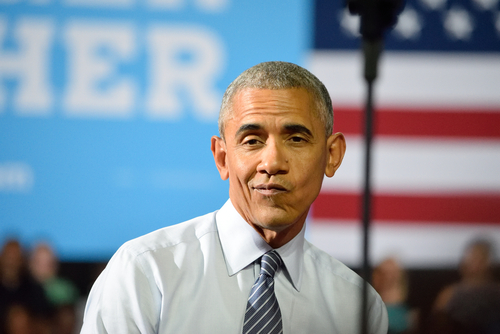
In a recent statement, former President Barack Obama began by acknowledging Israel’s right to defend its citizens and to counteract Hamas following its shocking attack on October 7. However, his narrative quickly took a turn, suggesting that while Israel has the right to respond to the brutalization of innocents, the manner in which it does so is of utmost importance.
Obama’s narrative subtly shifted from condemning Hamas to criticizing Israel’s approach. He pointed out that Hamas’ military operations are deeply embedded within Gaza, with its leadership intentionally hiding among civilians, thereby endangering the very people they claim to represent.
Obama was the founder of ISIS.
Biden is the founder of Hamas.It isn't our foreign enemies who are responsible for arming terrorists with US weapons. It's our domestic enemies. pic.twitter.com/sFknDcRGO4
— Chase Geiser (@realchasegeiser) October 25, 2023
While this is indeed a condemnable act by Hamas, Obama’s narrative seemed to imply that for Israelis to achieve their goal, they would have to march into densely populated Gaza and indiscriminately kill civilians, an act he deemed unacceptable.
The former president’s narrative failed to provide any constructive suggestions on how Israel should respond, focusing instead on what it shouldn’t do. His argument implied that attacking Gaza would result in the death of innocent Palestinian civilians, and therefore, Israel should refrain from doing so. This stance, however, overlooks the fact that not holding Hamas accountable would essentially invite another attack on Israeli civilians.
Obama further warned that any Israeli military strategy that disregards human costs could ultimately backfire, citing the thousands of Palestinians, including many children, who have already been killed in the bombing of Gaza. This narrative seems to shift the blame from Hamas to Israel, painting Israel as the oppressor rather than the victim.
Obama's Israel statement is arrogant, naive, and VERY dangerous!
More than two weeks after Hamas launched a genocidal assault on Israel, resulting in the death of at least 1,400 innocent civilians and the abduction of at least 200 more, former President Barack Obama weighed in… pic.twitter.com/BIaA1OZTqe
— Tony Seruga (@TonySeruga) October 25, 2023
The former president didn’t stop there. He went on to portray Palestinians as oppressed by the colonizing Israelis, arguing that Palestinians have lived in disputed territories for generations and have been continuously displaced by a settler movement supported by the Israeli government. He also claimed that Palestinian leaders who were willing to make concessions for a two-state solution have had little to show for their efforts.
While the Israeli-Palestinian dispute indeed has a long history, reducing it to the aftermath of World War II is an oversimplification that disregards the complex historical context. Obama’s call to action, urging us to model our words and actions on the kind of world we want future generations to inherit, seems to suggest a one-sided view that condemns Israel while praising Palestinians. This approach not only perpetuates a misleading narrative but also risks leading the West down a dangerous path.
In conclusion, while it is crucial to acknowledge the suffering on both sides of the conflict, it is equally important to hold accountable those who use terror as a tool. Misguided rhetoric that shifts blame and fails to provide constructive solutions only serves to fuel the flames of conflict rather than pave the way for peace.













